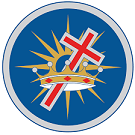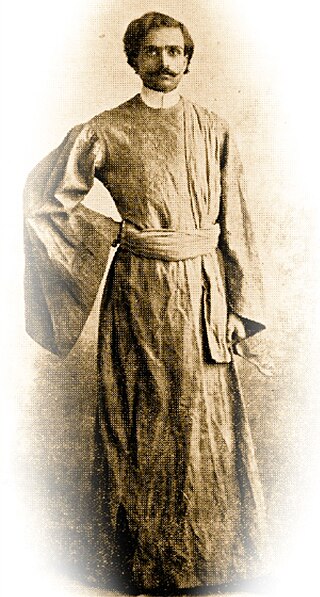Pentecostalism or classical Pentecostalism is a Protestant Charismatic Christian movement that emphasizes direct personal experience of God through baptism with the Holy Spirit. The term Pentecostal is derived from Pentecost, an event that commemorates the descent of the Holy Spirit upon the Apostles and other followers of Jesus Christ while they were in Jerusalem celebrating the Feast of Weeks, as described in the Acts of the Apostles.

Unitarian Universalism is a liberal religious movement characterized by a "free and responsible search for truth and meaning". Unitarian Universalists assert no creed, but instead are unified by their shared search for spiritual growth. Unitarian Universalists do not have an official, unified corpus of sacred texts. Unitarian Universalist congregations include many atheists, agnostics, deists, and theists; there are churches, fellowships, congregations, and societies around the world.
Unitarianism is a nontrinitarian branch of Christianity. Unitarian Christians affirm the unitary nature of God as the singular and unique creator of the universe, believe that Jesus Christ was inspired by God in his moral teachings and that he is the savior of humankind, but he is not equal to God himself.

Unity is a spiritual organization founded by Charles and Myrtle Fillmore in 1889. It grew out of Transcendentalism and became part of the New Thought movement. Unity may be best known for its Daily Word devotional publication begun in 1924. Originally based in Christianity with emphasis on the Bible, Unity has said it is a "Christian movement that emphasizes affirmative prayer and education as a path to spirituality," and says about itself, "We honor all spiritual practices and the diversity of paths leading to enlightenment."

Community of Christ, known from 1872 to 2001 as the Reorganized Church of Jesus Christ of Latter Day Saints (RLDS), is an American-based international church, and is the second-largest denomination in the Latter Day Saint movement. The church reports approximately 250,000 members in 1,100 congregations in 59 countries. The church traces its origins to Joseph Smith's establishment of the Church of Christ on April 6, 1830. His eldest son Joseph Smith III formally accepted leadership of the church on April 6, 1860 in the aftermath of the 1844 death of Joseph Smith.

Christian Science is a set of beliefs and practices which are associated with members of the Church of Christ, Scientist. Adherents are commonly known as Christian Scientists or students of Christian Science, and the church is sometimes informally known as the Christian Science church. It was founded in 1879 in New England by Mary Baker Eddy, who wrote the 1875 book Science and Health with Key to the Scriptures, which outlined the theology of Christian Science. The book became Christian Science's central text, along with the Bible, and by 2001 had sold over nine million copies.
Word of Faith is a movement within charismatic Christianity which teaches that Christians can get power and financial prosperity through prayer, and that those who believe in Jesus' death and resurrection have the right to physical health.
The Church of Divine Science is a religious movement within the wider New Thought movement. The group was formalized in San Francisco in the 1880s under Malinda Cramer. "In March 1888 Cramer and her husband Frank chartered the 'Home College of Spiritual Science'. Two months later Cramer changed the name of her school to the 'Home College of Divine Science'." during the dramatic growth of the New Thought Movement in the United States. After the San Francisco earthquake of 1906 and the death of Malinda Cramer, the headquarters moved back to Colorado, establishing its headquarters in Denver, later to move the base of its operations to Pueblo.

The Universalist Church of America (UCA) was originally a Christian Universalist religious denomination in the United States. Known from 1866 as the Universalist General Convention, the name was changed to the Universalist Church of America in 1942. In 1961, it consolidated with the American Unitarian Association to form the Unitarian Universalist Association.
Prosperity theology is a religious belief among some Charismatic Christians that financial blessing and physical well-being are always the will of God for them, and that faith, positive scriptural confession, and giving to charitable and religious causes will increase one's material wealth. Material and especially financial success is seen as a sign of divine grace or favor.
The New Thought movement is a new religious movement that coalesced in the United States in the early 19th century. New Thought was seen by its adherents as succeeding "ancient thought", accumulated wisdom and philosophy from a variety of origins, such as Ancient Greek, Roman, Egyptian, Chinese, Taoist, Hindu, and Buddhist cultures and their related belief systems, primarily regarding the interaction among thought, belief, consciousness in the human mind, and the effects of these within and beyond the human mind. Though no direct line of transmission is traceable, many adherents to New Thought in the 19th and 20th centuries claimed to be direct descendants of those systems.
A cafe church is a Christian church centered in cafés. These edifices are associated with alternative worship and the emerging church movements, and seek to find new forms and approaches to existing as a church in the 21st century. These churches are often focused on relationship aspects of Christian fellowship and outreach to their local community, and use the modern gathering place of a café in their ministry.

John Graham Lake was a Canadian-American leader in the Pentecostal movement that began in the early 20th century, and is known as a faith healer, missionary, and with Thomas Hezmalhalch, co-founder of the Apostolic Faith Mission of South Africa. Through his 1908–19 African missionary work, Lake played a decisive role in the spread of Pentecostalism in South Africa, the most successful southern African religious movement of the 20th century. After completing his missionary work in Africa, Lake evangelized for 10 years, primarily along the west coast of the United States setting up "healing rooms" and healing campaigns, and establishing churches. Lake was influenced by the healing ministry of John Alexander Dowie and the ministry of Charles Parham.

Charles Sherlock Fillmore was an American religious leader who founded Unity, a church within the New Thought movement, with his wife, Myrtle Page Fillmore, in 1889. He became known as an American mystic for his contributions to spiritual interpretations of Biblical Scripture. Fillmore promoted vegetarianism for three decades of his life.

The Apostolic Faith Mission of South Africa (AFM) is a classical Pentecostal Christian denomination in South Africa. With 1.2 million adherents, it is South Africa's largest Pentecostal church and the fifth largest religious grouping in South Africa representing 7.6 percent of the population. Dr. Isak Burger has led the AFM as president since 1996 when the white and black branches of the church were united. It is a member of the Apostolic Faith Mission International, a fellowship of 23 AFM national churches. It is also a member of the South African Council of Churches.

The Assemblies of God USA (AG), officially The General Council of the Assemblies of God, is a Pentecostal Christian denomination in the United States and the U.S. branch of the World Assemblies of God Fellowship, the world's largest Pentecostal body. The AG reported 2.9 million adherents in 2022. In 2011, it was the ninth largest Christian denomination and the second largest Pentecostal denomination in the United States. The Assemblies of God is a Finished Work denomination, and it holds to a conservative, evangelical and classical Arminian theology as expressed in the Statement of Fundamental Truths and position papers, which emphasize such core Pentecostal doctrines as the baptism in the Holy Spirit, speaking in tongues, divine healing and the Second Coming of Jesus Christ.

Akhay Kumar Mozumdar was an Indian American spiritual writer and teacher associated with the New Thought Movement in the United States. He became a naturalized American in 1913 and in 1923, following United States v. Bhagat Singh Thind, Mozumdar was the first Indian after Bhagat Singh Thind to have his United States citizenship taken away.
Christian universalism is a school of Christian theology focused around the doctrine of universal reconciliation – the view that all human beings will ultimately be saved and restored to a right relationship with God. "Christian universalism" and "the belief or hope in the universal reconciliation through Christ" can be understood as synonyms. Opponents of this school, who hold that eternal damnation is the ultimate fate of some or most people, are sometimes called "infernalists."
Unitarianism, as a Christian denominational family of churches, was first defined in Poland-Lithuania and Transylvania in the late 16th century. It was then further developed in England and America until the early 19th century, although theological ancestors are to be found as far back as the early days of Christianity. It matured and reached its classical form in the middle 19th century. Later historical development has been diverse in different countries.









